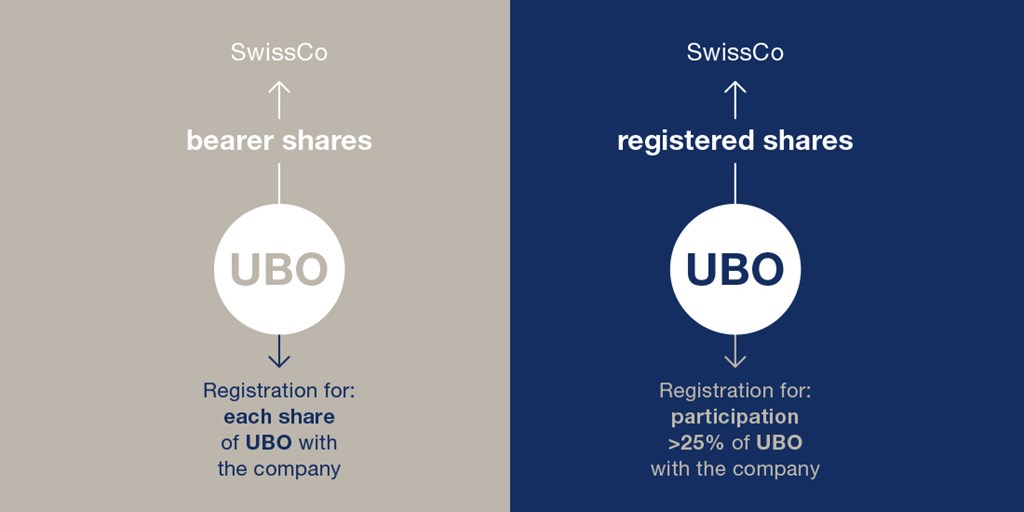Switzerland has no intention to introduce such a publicly available register. However, companies in Switzerland are also subject to certain compliance obligations. This is what you need to consider.&
Within the European Union, member states are obliged to implement the fourth Anti-Money Laundering Directive (AMLD) in their local legislation. Under the AMLD member states have to introduce two registers:
- A publicly available register in which personal information of the ultimate beneficial owners (UBOs) of local legal entities is mentioned; and
- A non-publicly available register for UBOs of local trusts (UBO Registers).
Some UBOs have legitimate and important reasons why they do not want to be listed in one of these registers. Such legitimate reasons are for instance security concerns with regard to children or avoidance of political persecution.
Transparency in Switzerland
In Switzerland the introduction of such UBO registers is not intended at all. However, for anti-money laundering purposes Switzerland increased transparency with regard to the UBOs of Swiss legal entities, too.
The transparency obligations depend on the type of shares concerned. For bearer shares each person acquiring or holding such shares of a non-listed Swiss company has to disclose its name and the address of the company. With regard to registered shares with persons acquiring shares of unlisted Swiss companies and holding, as a result of the purchase, 25% or more of the share capital or the voting rights of the company: then the person is required to disclose the identity and address of the ultimate beneficial owner to the company or, upon delegation by the company, to a financial intermediary.

Board of directors is responsible
The board of directors ensures the maintenance of a register of the beneficial owners of the company in accordance with the corresponding provisions of the applicable law. The register of the beneficial owners of a company concerned must be kept and stored in such a way that it is accessible from within Switzerland at all times, including after the deletion of the company. The supporting documents for the registration are to be kept for a minimum of ten years after the deletion of the owner or usufructuary from the share register or after the deletion of the person from the register of beneficial owners of the company. The board of directors ensures the safekeeping of the register of beneficial owners of the company, as well as the corresponding supporting documents.
Disclosure identity UBO
The measures currently in force in Switzerland only require the disclosure of the identity of the UBO to the company and not to a public authority or publicly available register. Consequently, there is no existing publicly accessible register of ultimate beneficial owners of Swiss companies. However, given that the company knows the identity of the UBOs, it is still possible that such information is exchanged under tax treaties or in course of administrative assistance or criminal procedures between countries.





